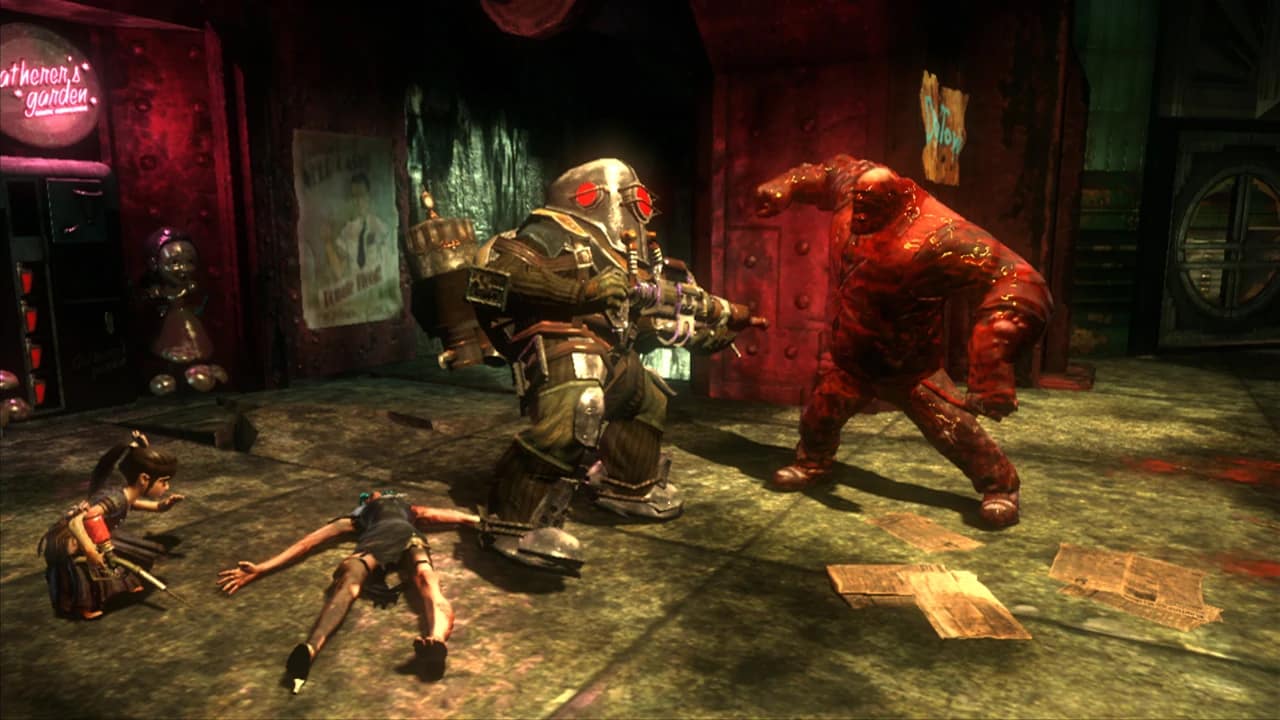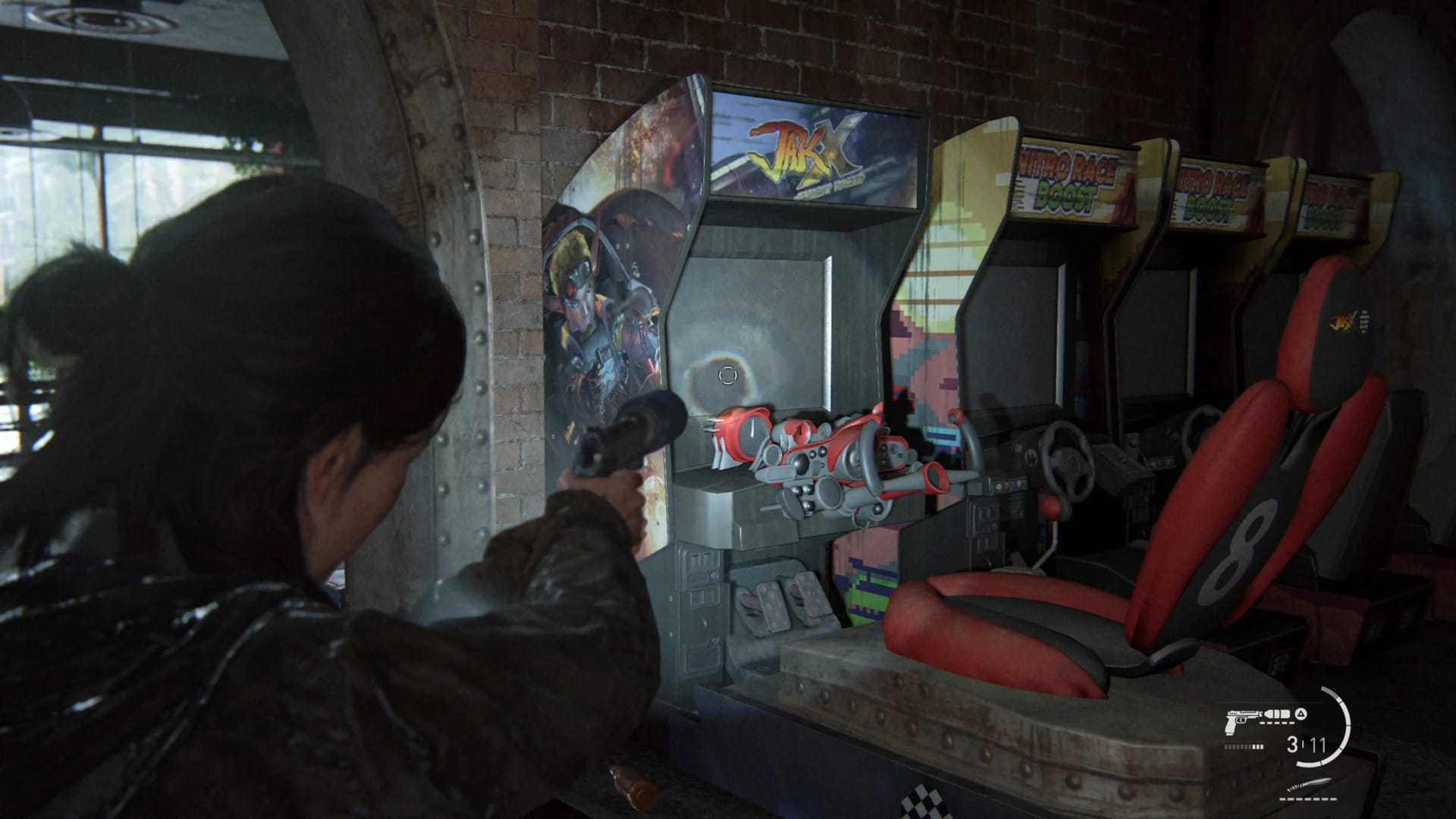With excitement building for Arkane Studios’ upcoming immersive sim Deathloop, I’ve been thinking about the sentiment that immersive sims are a niche “gamer’s game” genre. I’ve seen it echoed a lot over the years: It was mentioned in comments on a Deus Ex article I wrote last year, for example, and even Arkane itself admitted (with a justified degree of pride) that it makes “weird stuff” in a Noclip documentary about the studio. But I am not convinced it’s accurate.
I believe the influence immersive sims have exerted in the 20-30 years since the release of the four defining games of the genre — Ultima Underworld: The Stygian Abyss, System Shock, Thief, and Deus Ex — has been subtle, but widespread. Immersive sim elements can be identified in the likes of The Elder Scrolls, The Legend of Zelda: Breath of the Wild, and The Last of Us Part II — to pick just a few tonally disparate games or franchises.
Immersive sims are difficult to define. One of the reasons for this is that they are less a coherent genre with clearly delineable boundaries and more a design philosophy, as Mark Brown puts it. This philosophy places two things front and center: player agency and simulation. The player should have options for approaching a given situation, and whatever happens in that situation should be simulated as accurately as possible within the laws of the game world.

One consequence of this approach is an emphasis on complex situations that emerge from the interaction of relatively simple inputs and systems, or so-called emergent gameplay — think of StealthGamerBR’s elaborate runs through Dishonored as an especially vivid example. This in turn helps foster a sense of immersion: The player feels immersed in the game because the game facilitates and simulates systemic responses to the player’s chosen style of play.
The argument that immersive sims are niche focuses on the first wave of immersive sims, like System Shock and Thief, and the games subsequently released by Arkane and the shuttered Irrational Games: Arx Fatalis, the Dishonored series, Prey, and the BioShock series. That is only a handful of games in 25 years of game development, sometimes accompanied by underwhelming sales, so it is not difficult to argue that there is something esoteric about the genre.
There are historical reasons to group immersive sims in this way. Harvey Smith worked on System Shock and Deus Ex with Warren Spector, who also worked on Ultima Underworld. Smith is now a director at Arkane Austin. Meanwhile, Ken Levine worked on System Shock 2 and Thief and then headed up Irrational. Looked at in this way, there is a clear line connecting the first immersive sim to the latest.
However, I don’t see any intrinsic reason why immersive sims should be confined to a particular developer DNA or design template. The defining elements of the immersive sim philosophy — player agency and simulation, leading to emergent gameplay in an immersive world — have been taken up and applied by other developers to other types of games.

Take the three examples I noted at the start. The similarities between Ultima Underworld and The Elder Scrolls: Arena, for instance, are apparent just by looking at the visuals and UI. But The Elder Scrolls continued to emphasize player agency and simulation throughout the 25-year history of the RPG franchise.
The series offers game worlds built almost entirely from individual assets that can each be picked up, thrown, dropped, stolen, bought, or sold, fully customizable classes that vary gameplay from stealth all the way to FPS-esque spellcasting, AI behaviors for NPCs, and other ways of trying to encourage emergent gameplay. Sure, it often comes riddled with laughable bugs, clunky animations, and simplified implementation, but there is no denying that at its heart every Elder Scrolls title has tried to put the player in a simulated world and to give them a choice of approaches for interacting with that world.
Breath of the Wild supports a narrower range of simulated behaviors and player choice than something like Morrowind or Oblivion, but it offers greater depth of emergent gameplay through more polished systems that have more points of intersection. In particular, the interaction between the game’s relatively simple systems for attacking, dodging, deflecting, climbing, gliding, and surfing, boosted by various cooking buffs, the Sheikah Slate powers, and the physics engine, generates situations that easily rival the most intricate playthroughs of Dishonored.

At the opposite end of the scale, both tonally and structurally, is The Last of Us Part II. With the exception of an early open area, the game is level-based and linear rather than open-world, but it offers a degree of player agency that is unusual in AAA games of this caliber. Most levels offer elements of optional exploration and several routes through an area. Weapons range from stealthy to loud, complemented by basic traps, craftable upgrades, cover mechanics, and the occasional option to set enemies on each other. The overall gameplay loop is an exercise in balancing dwindling resources against the risks associated with exploration, as well as practicing stealth against the fallout from being spotted, underscored by light upgrading and platforming.
The problem with this way of looking at things, of course, is the old slippery slope argument: If even The Last of Us Part II qualifies as a kind of immersive sim-light, then what else? If player agency and simulation that foster immersion and emergent gameplay are sufficient conditions for “immersive sim-ness,” it does seem like an awful lot of games might qualify.
Then again, if I’m right that immersive sim sensibilities are subtle but widespread, then perhaps the slippery slope is precisely the point. I often come back to a quote from a 2009 interview with Cliff Bleszinski, the lead designer on the first three Gears of War games: “It pleased me to no end that [BioShock] did so well. I had a conversation with Harvey Smith — one of the lead designers on Deus Ex — and said to him the future of shooters is RPGs. He said he completely agreed.” A decade later, finding the 0451 passcode made infamous by System Shock and Deus Ex on a scrap of paper in The Last of Us Part II, I can’t help but think that Bleszinski and Smith were on to something.





